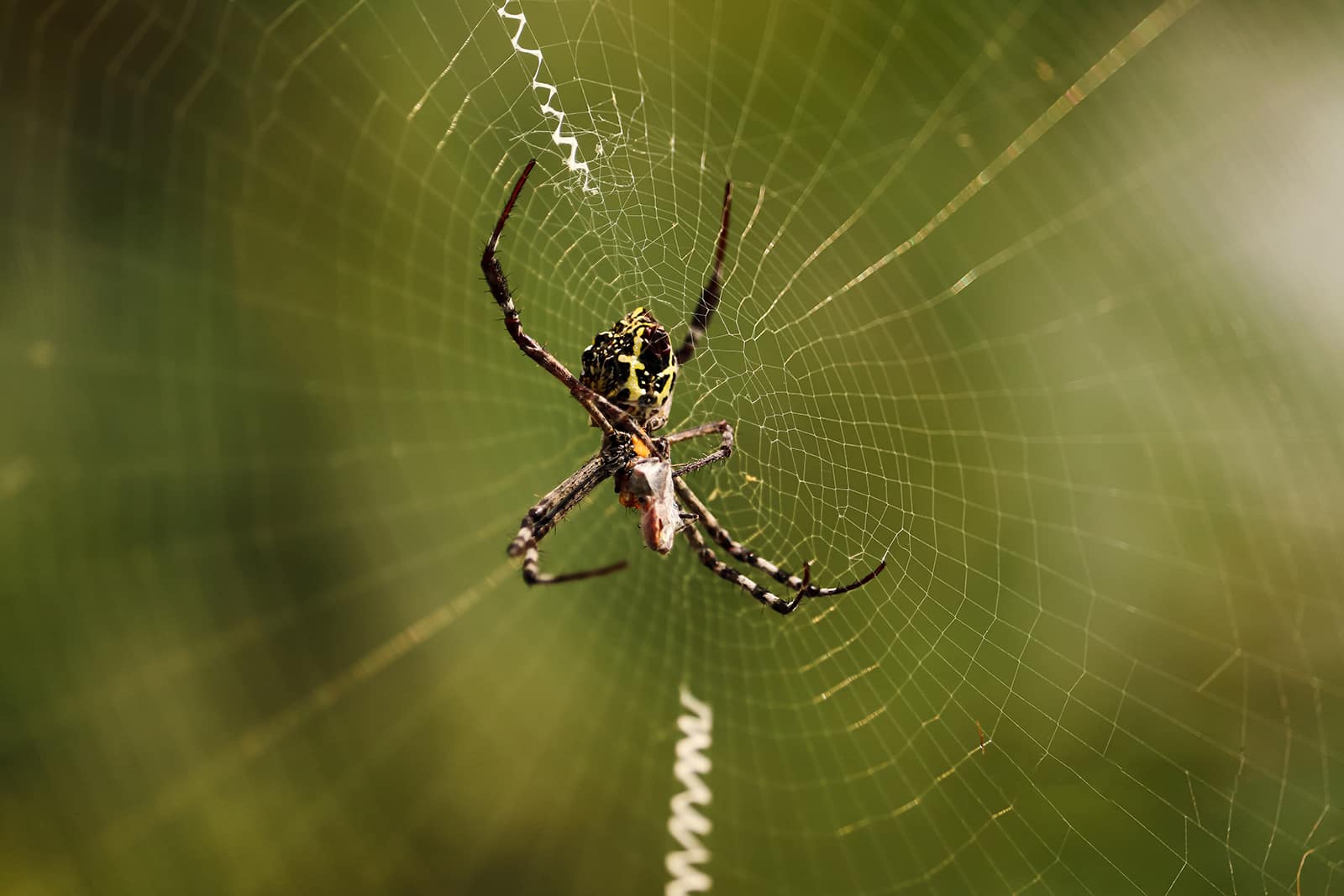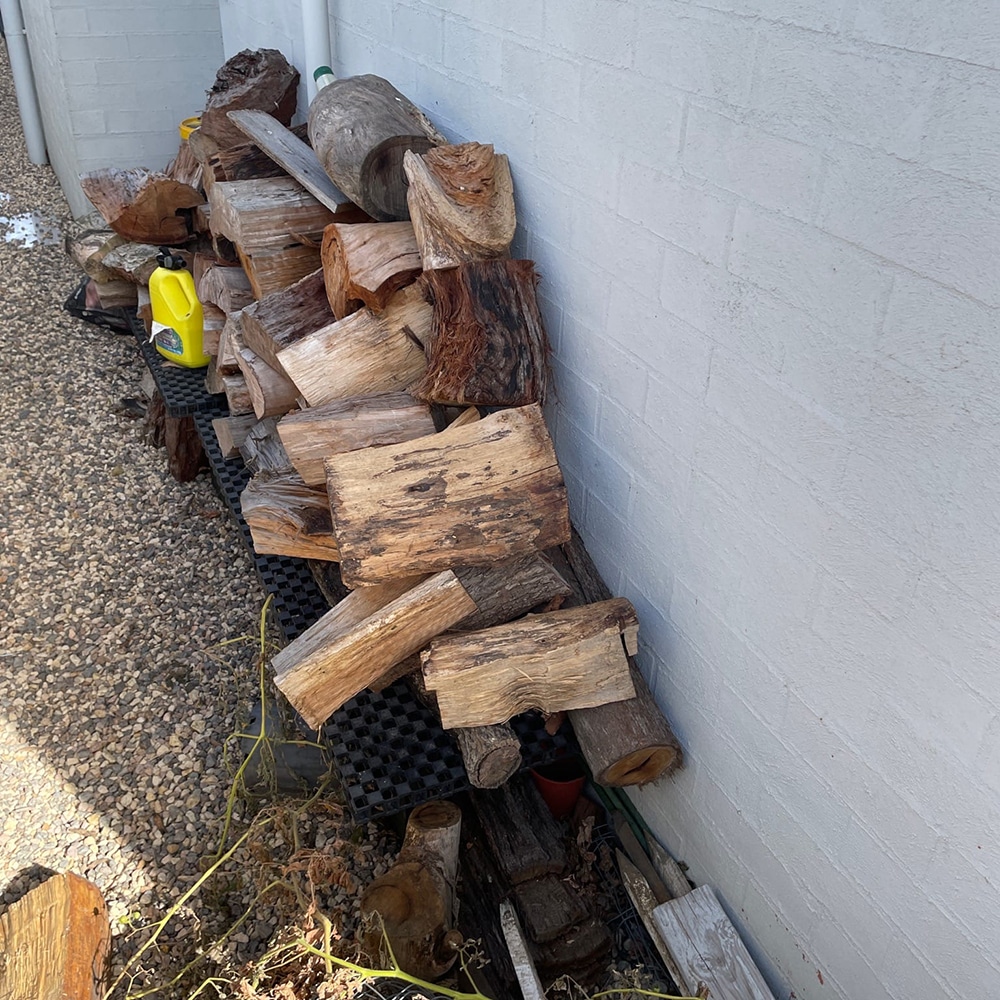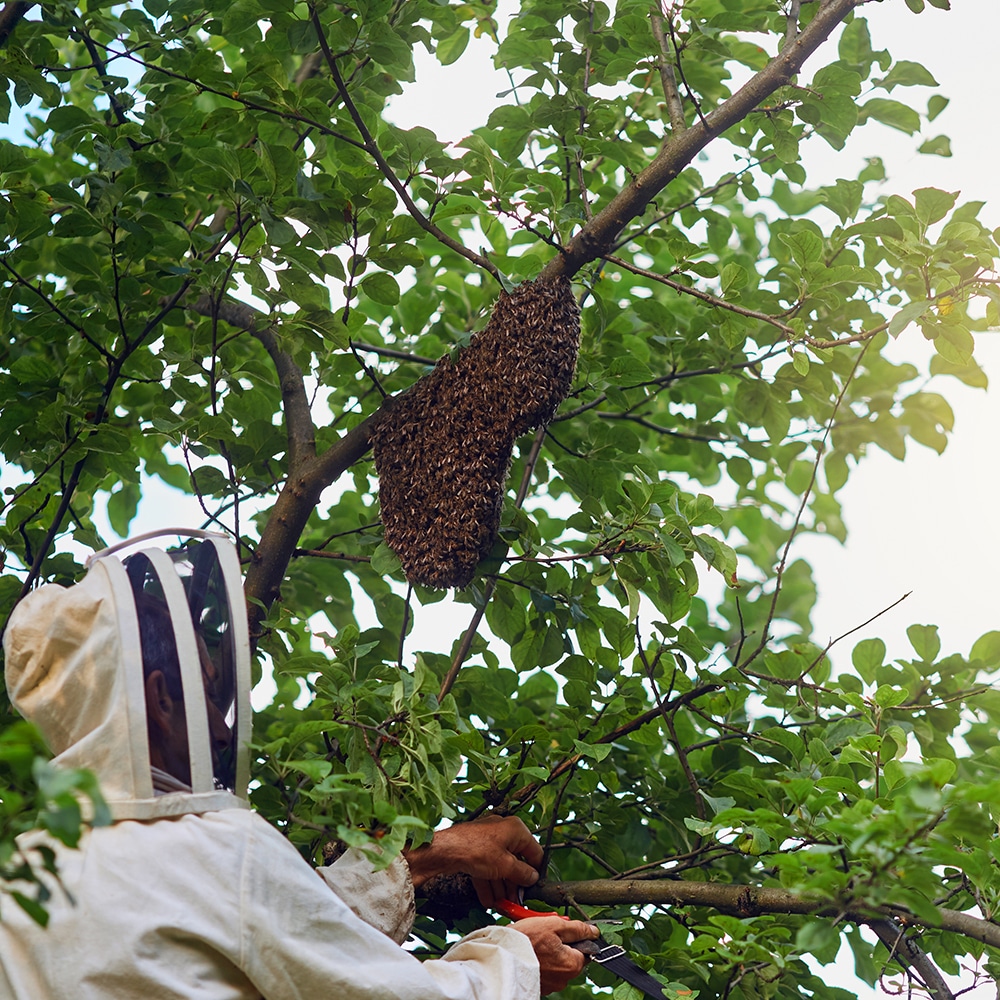
Why Do Spiders Come Back And Why
Why Do Spiders Come Back And Why On The Central Coast NSW. Responsive Proactive Solutions. Detail-focused for lasting results. Call Adam on 0431 222 894
How to Stop Spiders from Nesting in Outdoor Areas is a common concern for many. Spiders often find outdoor spaces inviting for nesting. At Vital Pest Control, we offer solutions to keep them at bay.
Why do spiders build nests in outdoor spaces?
Spiders seek shelter, food, and a safe place to reproduce. Outdoor areas provide these essentials. They often choose spots like corners and eaves for nesting.
How to remove spider webs from patios
Use a broom with long bristles to sweep away webs. Remove debris regularly to discourage spiders from returning.
Best outdoor sprays to keep spiders away
Choose sprays with natural ingredients like peppermint or citrus. These deter spiders without harming plants or pets.
How to use natural repellents for outdoor spider control
Mix water with peppermint oil and spray around entry points. This helps keep spiders at bay naturally.
Why porch lights attract spiders
Lights attract insects, drawing spiders seeking prey. Use yellow bulbs to reduce insect attraction.
How to prevent spiders from hiding in outdoor furniture
Inspect and clean furniture regularly. Cover it when not in use to make it less inviting for spiders.
The best landscaping changes to reduce spiders
Trim bushes and trees to limit spider access. Avoid dense plantings near patios and entrances.
How to remove spider egg sacs from outdoor spaces
Carefully remove sacs with a stick or gloved hand. Dispose of them far from your property to prevent hatching nearby.
Want to learn more solutions tailored for Central Coast NSW? Discover how we can help you today! Visit our Contact page.

Spiders are fascinating creatures that often choose to build their nests in outdoor spaces. For residents of the Central Coast NSW, understanding why spiders select these areas can help in managing their presence effectively. Spiders naturally gravitate towards environments that offer abundant food, shelter, and optimal conditions for survival.
Abundance of Food Sources
Outdoor spaces often teem with insects, providing a rich food source for spiders. Areas like gardens, sheds, and verandahs attract many bugs, making them ideal hunting grounds. Spiders are drawn to these locations where they can easily catch prey. This natural availability of food is a primary reason spiders choose to nest outdoors.
Shelter and Protection
The natural landscape of outdoor spaces offers many hiding spots that provide protection from predators. Leafy bushes, crevices, and other sheltered areas are perfect for spiders to construct their nests. These locations offer a safe haven where spiders can thrive without being disturbed, enhancing their chances of survival.
Favourable Environmental Conditions
Spiders prefer environments with stable temperatures and humidity levels. Outdoor spaces can provide these conditions, especially in the Central Coast NSW. The region’s climate supports spider activity, allowing them to build nests in areas where they are less likely to be affected by extreme weather changes.
Spider webs on patios can be a nuisance, making your outdoor space feel uninviting. Removing them effectively requires a few simple steps and regular maintenance to keep your patio looking fresh. Here’s how you can tackle the issue for a spider-free patio on the Central Coast.
Use a Broom or Duster
The easiest way to get rid of spider webs is by using a broom or duster. Sweep the webs gently, starting from the top corners of the patio and working your way down. This method ensures you reach all the nooks where spiders tend to spin webs. Consider using a broom with extendable handles to access high areas without a ladder.
Utilise a Vacuum Cleaner
If you have an outdoor vacuum cleaner, it can be a powerful tool for removing webs. Use the hose attachment to suck up webs from corners, ceilings, and railings. This method not only removes the webs but also captures any hidden spiders, reducing the chance of webs reappearing quickly.
Apply a Web Repellent
To prevent webs from forming again, consider applying a spider web repellent. These sprays create a barrier that discourages spiders from nesting. Ensure you apply the repellent to common web-building areas like corners and under furniture. Reapply after heavy rain to maintain effectiveness.
Spiders can be a nuisance in outdoor areas, especially when they decide to nest near your home. Fortunately, using the right outdoor sprays can help keep these creepy crawlies at bay. Vital Pest Control on the Central Coast NSW offers effective solutions to manage spider invasions. Understanding which outdoor sprays work best can make a significant difference in maintaining a spider-free environment.
Natural Ingredients
Natural sprays often include essential oils like peppermint or eucalyptus. These oils disrupt a spider’s sensory organs, making it difficult for them to navigate. Applying a natural spray around windows, doors, and garden areas can create an invisible barrier that deters spiders. Not only are these options eco-friendly, but they are also safe for pets and children.
Chemical Sprays
Chemical sprays provide a more potent solution for severe infestations. These sprays often contain pyrethroids, compounds known for their effectiveness in pest control. While highly efficient, it’s crucial to follow application instructions carefully to avoid harming non-target species. Regular application around typical spider entry points ensures maximum protection.
Homemade Solutions
For a cost-effective option, consider homemade sprays using vinegar and water. Vinegar is known for its acetic acid content, which repels spiders. Mixing equal parts of vinegar and water creates a simple yet effective deterrent. Spray this solution regularly in corners and crevices to prevent spiders from nesting.
Keeping spiders at bay without harsh chemicals can be a natural and effective method for outdoor areas. Natural repellents offer a safe alternative for families and pets, ensuring a healthier environment. These solutions utilise common household items and plants, providing a convenient way to manage pests.
Citrus and Essential Oils
Spiders are not fans of citrus. Using a mixture of citrus peels and essential oils like peppermint or tea tree can deter them. Simply combine the oils with water and spray around doorways, windows, and other entry points. The strong scent is unpleasant for spiders, encouraging them to find a new home elsewhere.
Vinegar Solutions
Vinegar is another powerful tool for spider control. Mix equal parts of water and white vinegar in a spray bottle. Apply this solution to cracks, crevices, and potential hiding spots. Spiders dislike the smell of vinegar, making it an effective deterrent that is both simple and affordable.
Herbs and Plants
Certain plants naturally repel spiders. Planting lavender, eucalyptus, or mint around your outdoor areas can provide a fragrant barrier that spiders avoid. These plants not only enhance your garden’s beauty but also serve as a natural pest control method, ensuring a spider-free zone.
Porch lights often serve as unintended beacons for spiders, drawing them towards homes on the Central Coast of NSW. Understanding why these eight-legged creatures are attracted to light can help in implementing effective pest control strategies.
Insects Drawn to Light
Porch lights attract a myriad of insects, which in turn become a food source for spiders. Many insects are naturally drawn to light, especially at night. As these insects swarm around the light, spiders seize the opportunity to catch a meal. This is why you might often find webs around your porch light.
Warmth and Shelter
Spiders also seek the warmth that lights emit, particularly during cooler nights. The small crevices and corners near light fixtures offer ideal spots for spinning webs and creating homes. This warmth provides a comfortable environment for spiders, encouraging them to settle nearby.
Motion and Shadows
Lights often create shadows and motion, which can mimic the movements of prey. Spiders detect these movements and respond by building webs where they are likely to catch unsuspecting insects. This instinctive behaviour enhances their chances of capturing prey, making porch lights an attractive location.
Outdoor furniture often becomes a haven for spiders, which can be unsettling and inconvenient. Understanding how to prevent these eight-legged creatures from taking up residence in your backyard can make your outdoor experience more enjoyable and less creepy. Here’s how to keep spiders at bay from your outdoor furniture on the Central Coast of NSW.
Regular Cleaning and Maintenance
Spiders love cluttered and dusty areas, so keeping your outdoor furniture clean is essential. Regularly wipe down surfaces to remove webs and debris. Use a brush to clean crevices where spiders might hide. This not only prevents spiders but also maintains the furniture’s appearance.
Use Spider Repellents
Natural repellents like essential oils can deter spiders. Oils such as peppermint, tea tree, and eucalyptus are effective. Mix them with water and spray onto furniture. This simple solution is non-toxic and safe for pets and plants, while keeping spiders away.
Strategic Furniture Placement
Position furniture away from walls, trees, and plants. Spiders often use these as pathways. By keeping your furniture isolated, you reduce the chances of spiders migrating to your seating area. Elevate furniture on legs to discourage spiders from nesting underneath.
Regular Inspections
Frequent checks help spot the first signs of spider activity. Look beneath cushions and in corners. Early detection allows for quick action before spiders establish nests. This proactive approach ensures a spider-free zone, enhancing your outdoor relaxation.
Spiders can be both a nuisance and a concern for many homeowners on the Central Coast NSW. Effective landscaping changes can help reduce their presence, making your outdoor areas more enjoyable and less spider-friendly.
Trim Bushes and Shrubs
Dense bushes and shrubs provide ideal hiding spots for spiders. Regularly trimming these plants not only improves the look of your garden but also reduces spider habitats. Keep branches away from exterior walls to prevent spiders from easily accessing your home. Mulching can also deter insects that spiders feed on, further discouraging them.
Install Outdoor Lighting Strategically
Spiders are attracted to areas where insects gather, often near outdoor lights. Opt for yellow LED lights, which attract fewer insects than traditional bulbs. Place lights away from entryways and windows to minimise the number of bugs—and subsequently spiders—near your home.
Remove Clutter and Debris
Spiders love cluttered spaces. Keeping your yard clean and free of debris like leaves, wood piles, and unused pots reduces hiding spots. Regularly sweep and organise sheds and garages to further limit spider-friendly environments. A tidy garden not only looks better but also supports pest control efforts.
Outdoor spaces on the Central Coast NSW can be a haven for spiders, especially when it comes to finding spots to lay their egg sacs. Removing these sacs promptly is crucial to prevent a spider population surge in your garden or patio. Here’s how you can efficiently tackle this task.
Identify Spider Egg Sacs
Start by correctly identifying spider egg sacs. They often appear as small, round, silk-wrapped bundles. Look for these sacs in sheltered areas like corners, under eaves, or within garden furniture. Identifying them early can prevent a larger infestation.
Use the Right Tools
Equip yourself with a broom or a long-handled brush to reach high or hidden places. For more delicate areas, a vacuum cleaner with a hose attachment can efficiently suck up the sacs without causing damage to your property. Always ensure tools are clean to avoid spreading any eggs.
Dispose of Egg Sacs Safely
Once collected, dispose of the egg sacs in a sealed plastic bag. This prevents any remaining eggs from hatching and spreading. Place the bag in a covered bin to ensure they are thoroughly removed from your surroundings.
Maintain Regular Checks
Regularly inspect your outdoor areas for new egg sacs, particularly during warmer months when spiders are most active. Consistent monitoring and removal can significantly reduce the chances of a spider infestation. Stay proactive to keep your outdoor spaces spider-free.
Spiders nesting in mailboxes can be a nuisance and a potential hazard. For residents on the Central Coast NSW, keeping these eight-legged creatures at bay is essential. Proper maintenance and a few effective strategies can help prevent spiders from making your mailbox their home.
Regular Cleaning
Keeping your mailbox clean is the first step in deterring spiders. Regularly wipe down the inside and outside with a damp cloth to remove webs and debris. This discourages spiders from settling in. Make cleaning a part of your routine to maintain a spider-free mailbox.
Sealing Gaps
Inspect your mailbox for any gaps or openings where spiders might enter. Use weatherproof sealant to close these gaps. This simple action not only keeps spiders out but also protects your mail from the elements. A tightly sealed mailbox is less inviting to spiders.
Natural Repellents
Consider using natural repellents like peppermint oil to deter spiders. Mix a few drops with water in a spray bottle and apply it to the mailbox. The strong scent repels spiders, making it an effective and eco-friendly solution. Reapply regularly for the best results.
Professional Pest Control
If spiders persist, it might be time to call in the experts. Vital Pest Control on the Central Coast NSW offers professional services to handle stubborn infestations. Their expertise ensures your mailbox remains spider-free, providing peace of mind and safety.
Garages and sheds on the Central Coast of NSW are often unwelcome homes for outdoor spiders. Understanding why these structures attract spiders can help in implementing effective pest control measures.
Dark and Untouched Spaces
Garages and sheds typically have dark corners and rarely disturbed areas, providing perfect hiding spots for spiders. These spaces offer the seclusion spiders seek to build webs and lay eggs without much interference. The lack of natural light and minimal human activity make these spaces ideal for spiders to thrive.
Abundant Food Sources
Spiders are predators, primarily feeding on insects. Garages and sheds often house insects seeking shelter or food scraps, creating a food-rich environment for spiders. The presence of other pests like flies and moths in these areas attracts spiders looking for their next meal. Keeping these spaces clean and free from clutter can reduce the availability of food for spiders, making them less appealing.
Moisture and Shelter
Spiders are drawn to damp environments as they need moisture to survive. Garages and sheds can often be damp due to leaks or poor ventilation, especially in humid climates like the Central Coast. These conditions provide both the moisture spiders need and shelter from the elements, making these spaces attractive as potential homes.
Spider control is a common concern for residents on the Central Coast of NSW, and using natural methods is often preferred. Diatomaceous earth has gained popularity as an effective solution for outdoor spider management. This natural powder is composed of fossilised remains of tiny aquatic organisms called diatoms. Its abrasive nature can effectively target spiders without the use of harsh chemicals.
Application Techniques
For optimal results, apply diatomaceous earth around the perimeter of your outdoor areas. Focus on possible entry points like doors and windows. Lightly dust the powder in crevices and corners where spiders are likely to hide. Use a brush or applicator to ensure even coverage. Reapply after rain, as moisture can diminish its effectiveness.
Safety Precautions
While diatomaceous earth is generally safe, it’s important to wear a mask during application to avoid inhaling the powder. Keep pets and children away from treated areas until the dust settles. Opt for food-grade diatomaceous earth to ensure safety for both your family and the environment.
Long-term Benefits
Incorporating diatomaceous earth into your pest control routine offers sustainable spider management. Its natural properties not only deter spiders but also contribute to healthier garden ecosystems. By choosing this method, residents can enjoy spider-free outdoor spaces while minimising chemical exposure.
Spiders can be a nuisance on decks and balconies, especially in the warm climate of the Central Coast. Keeping these areas spider-free enhances outdoor enjoyment and reduces the risk of bites. Here are practical methods to deter spiders from these spaces.
Regular Cleaning and Maintenance
Keep decks and balconies clean to discourage spiders. Sweep away webs and debris regularly, removing places where spiders might hide. Clean corners and under furniture, as these are common nesting spots. Regular maintenance ensures that spiders don’t find a comfortable place to settle.
Use Natural Repellents
Natural repellents, like peppermint oil, can effectively keep spiders at bay. Mix a few drops of peppermint oil with water in a spray bottle and apply it to surfaces around decks and balconies. The strong scent repels spiders without harming pets or plants.
Declutter Outdoor Areas
Clutter provides perfect hiding spots for spiders. Keep decks and balconies organised by storing items like toys, cushions, and gardening tools in closed containers. This limits potential nesting sites, making the area less attractive to spiders.
Install Outdoor Lighting
Spiders are less likely to inhabit well-lit areas. Install outdoor lighting that minimises shadows where spiders could hide. Use yellow or sodium vapour lights, which attract fewer insects, thus reducing spider food sources.
Many homeowners on the Central Coast NSW are keen to keep spiders at bay without resorting to harsh chemicals. Certain plants can naturally attract or repel spiders, making them a vital component of natural pest control strategies.
Why Some Plants Attract Spiders
Plants that attract insects often draw spiders as well. Insects like flies and moths are spider prey, so plants that host these bugs can inadvertently invite spiders. For example, flowers such as lavender not only attract pollinators but can also become a hunting ground for spiders. The insects lured by the flowers provide a food source, encouraging spiders to set up camp nearby. Additionally, dense foliage offers spiders excellent hiding spots and a perfect environment for weaving webs.
Plants That Repel Spiders
On the flip side, some plants contain natural compounds that spiders find unappealing. Herbs like peppermint and basil emit strong scents that deter spiders from nesting. The oils in these plants act as natural spider repellents, disrupting their sensory signals. Planting these herbs around outdoor areas can create a barrier that spiders are less likely to cross. Marigolds are another great option, as they produce a scent that repels many pests, including spiders.
Choosing the right combination of plants can significantly influence spider presence in outdoor spaces. By understanding which plants attract or repel spiders, homeowners can maintain a balanced and spider-free garden.
Spiders can be a nuisance when they decide to make your home their own. On the Central Coast of NSW, it’s a common issue for homeowners. While outdoor nests are natural, you can implement strategies to keep these eight-legged visitors from venturing inside.
Seal Entry Points
One effective method is to seal any cracks or gaps around windows, doors, and foundations. Spiders often sneak in through these unseen openings. Use caulk or weather stripping to block these entryways, making it harder for them to gain access to your home.
Maintain Outdoor Areas
Keeping your garden tidy can deter spiders. Regularly trim bushes, mow lawns, and remove debris. These actions reduce the number of hiding spots available for spiders, making your outdoor areas less appealing to them. Consider moving woodpiles and storage boxes away from the house.
Use Natural Deterrents
Essential oils like peppermint or eucalyptus can repel spiders. Mix a few drops with water in a spray bottle and spritz around doors and windows. These scents are unpleasant for spiders, encouraging them to stay away.
By taking these proactive steps, you can minimise the likelihood of spiders from outdoor nests entering your home, ensuring a more comfortable living space.
Spiders can be beneficial, but when they overrun outdoor spaces, it may be time to consider professional spider treatments. Recognising when to call in Vital Pest Control on the Central Coast NSW can save time and stress.
Visible Infestations
Noticing too many webs or spiders? If webs clutter the garden or spiders roam freely, it may indicate a larger problem. Professional treatments can handle infestations effectively, ensuring peace of mind.
Unsuccessful DIY Efforts
DIY treatments failing to curb spiders? If sprays and traps don’t work, a professional touch might be necessary. Experts possess the tools and knowledge to tackle stubborn spider populations.
Safety Concerns
Spiders lurking in high-traffic areas can pose risks, especially with children or pets around. Professional services can safely manage these pests, reducing the likelihood of spider bites or other incidents.
Seasonal Surges
Some seasons bring spider surges, making outdoor spaces unusable. When this happens, professional help assures that spaces remain comfortable and inviting year-round.
Consider Vital Pest Control for their expertise and reliable services when these issues arise on the Central Coast NSW.
Please leave your details in the form and we will call you back the same day.
So that we can process your enquire efficiently please leave as many details as possible and upload any relevant images. (.jpg and .png format)

Why Do Spiders Come Back And Why On The Central Coast NSW. Responsive Proactive Solutions. Detail-focused for lasting results. Call Adam on 0431 222 894

Building a Long Term Residential Pest Protection Plan For Home Owners On The Central Coast NSW. Responsive Proactive Solutions. Detail-focused for lasting results. Call Adam on 0431 222 894

How to Protect Your Home from Wasp Infestations On The Central Coast NSW. Responsive Proactive Solutions. Detail-focused for lasting results. Call Adam on 0431 222 894